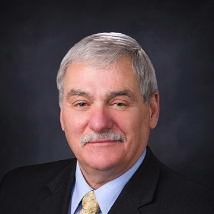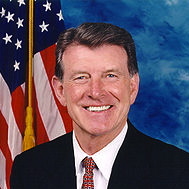Gov. Butch Otter said lawmakers are obligated to consider the seven labor bills being redrafted by the Idaho School Boards Association — despite his call to stand down from major reform.
During an hour-long Q and A with the Idaho Press Club over breakfast Friday, Otter said he is willing to consider all education proposals for which there is a broad consensus.
ISBA officials introduced their suite of bills last month. On Feb. 1, many residents pushed back against the legislation, saying the bills mirror aspects of Proposition 1, one of three Students Come First bills voters shot down Nov. 6.
Late Thursday, Senate Education Committee Chairman John Goedde, R-Coeur d’Alene, said ISBA leaders will rewrite those bills. The bills have been rewritten, ISBA Executive Director Karen Echeverria said this morning. They will be presented to the Senate Education Committee on Monday and the House Education Committee on Tuesday.

During his session-opening State of the State address, Otter said he was neither expecting, nor calling for serious education reform. Instead, he appointed an education task force to study reform ideas and develop consensus.
Despite that process, lawmakers won’t end up in the governor’s doghouse for considering the proposals. Otter reinforced the point that the bills came from education stakeholders – in this case, the ISBA, not lawmakers or the Idaho State Department of Education.
“I think the Legislature is obligated to institutions like the school boards association to at least bring those bills in,” Otter said. “You have got to introduce them in order to get hearings and the discussions (going).”
But Otter wouldn’t tip his hand about where he stands.
“I have rarely told anybody whether I will sign or veto a bill ahead of it hitting my desk, and I’m not going to make an exception here,” Otter said.
As for the task force itself, Otter said he would allow the group to do its work by staying out of the way.
“The task force has made … very sincere, legitimate efforts to move the state toward a reform system that will generate the kind of needs, not only for the students but also for the students entering the work force or entering higher education,” Otter said. “As I said in the State of the State even though we didn’t get any mandate for our three props on reform, I heard no clarion call for the status quo.”

Even with the Nov. 6 voter repeal, Otter said he continues to believe there is opportunity for reform. He said breaking Proposition 1 into seven smaller labor pieces gives lawmakers a chance to vet individual proposals, as opposed to making an all-or-nothing decision on one larger bill.
“I hear a lot of problems from folks … about If we don’t change our education system and prepare these folks coming out of high school to go into college and not go into the remedial classes in college or they want to go to work for business, business doesn’t want to have to put them through a course in letter writing, math, science or whatever,” Otter said.
